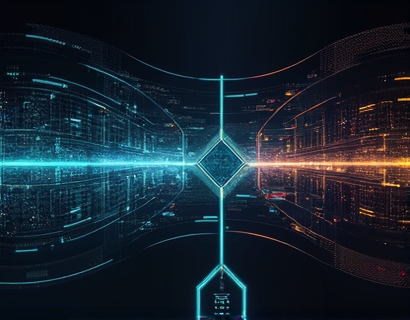Transforming Education: The Impact of Next-Gen Learning Platforms
The educational landscape is undergoing a significant transformation with the advent of next-generation learning platforms. These platforms are redefining how education is delivered, managed, and experienced, merging advanced technology with traditional learning methods. By leveraging sophisticated online course management and collaboration tools, these platforms are elevating the educational experience, making it more interactive, engaging, and effective.
Advanced Online Course Management
One of the core features of these next-gen platforms is their advanced online course management capabilities. Educators can create, organize, and deliver courses with unprecedented ease and flexibility. The platform allows for the seamless integration of various course components, including video lectures, interactive quizzes, reading materials, and assignment submissions. This comprehensive approach ensures that all aspects of a course are well-structured and easily accessible to students.
The course creation process is streamlined, enabling educators to focus more on content development rather than technical setup. Drag-and-drop interfaces and intuitive design elements make it simple to arrange modules, add multimedia content, and set assessment criteria. This user-friendly approach reduces the learning curve for educators, allowing them to quickly adapt to the platform and enhance their teaching methods.
Enhanced Collaboration Tools
Collaboration is a critical component of modern education, and next-gen learning platforms excel in this area. These platforms provide robust tools that facilitate real-time communication and teamwork among students and instructors. Features such as discussion forums, live chat, and video conferencing break down geographical barriers, enabling a more inclusive and interactive learning environment.
Students can form study groups, share resources, and work on group projects with ease. Instructors can provide timely feedback, conduct virtual office hours, and monitor student progress effectively. The platform's collaboration tools foster a sense of community and engagement, which are essential for deeper learning and better academic outcomes.
Personalized Learning Experiences
Another significant advantage of these platforms is their ability to support personalized learning. Adaptive learning technologies assess student performance and adjust the course content accordingly. This personalized approach ensures that each student receives the support they need to succeed, regardless of their starting point or learning pace.
For instance, students who grasp concepts quickly can move ahead to more advanced topics, while those who need extra help can access additional resources and practice exercises. This tailored experience not only boosts student confidence but also enhances retention and understanding of the material.
Real-Time Analytics and Reporting
Data-driven decision-making is crucial in education, and next-gen learning platforms provide powerful analytics and reporting tools. Educators can gain insights into student performance, engagement levels, and areas where students may be struggling. These insights enable instructors to intervene promptly and provide targeted support, ensuring that no student falls behind.
Administrators can also use these analytics to evaluate the overall effectiveness of courses and make data-informed decisions about curriculum improvements. The platform's real-time reporting features offer a comprehensive overview of the learning environment, helping to identify trends and areas for enhancement.
Seamless Integration and Compatibility
Interoperability is a key feature of modern learning platforms. These platforms are designed to integrate seamlessly with existing educational technologies and systems, such as Learning Management Systems (LMS), student information systems, and library resources. This integration ensures a smooth transition and minimizes disruptions in the educational workflow.
Compatibility with various devices and browsers ensures that students can access course materials and participate in activities from anywhere at any time. This flexibility is particularly important in today's diverse learning environment, where students may be accessing education from home, school, or on the go.
Security and Privacy
With the increasing reliance on digital platforms, security and privacy have become paramount concerns. Next-gen learning platforms prioritize the protection of sensitive student data through robust security measures. Encryption, secure authentication protocols, and regular security audits ensure that student information remains confidential and safe from unauthorized access.
Compliance with regulations such as the General Data Protection Regulation (GDPR) and the Family Educational Rights and Privacy Act (FERPA) is also a top priority. Educators and institutions can trust these platforms to handle their data responsibly, providing peace of mind for all stakeholders.
Future-Proofing Education
The integration of advanced technologies in education is not just a trend but a necessary evolution. Next-gen learning platforms are at the forefront of this change, equipping educators and students with the tools needed to thrive in a digital world. By embracing these platforms, educational institutions can future-proof their offerings, ensuring that they remain relevant and effective in an ever-changing landscape.
The convergence of technology and education opens up new possibilities for innovation and improvement. As these platforms continue to evolve, they will likely incorporate emerging technologies such as artificial intelligence, virtual reality, and augmented reality, further enhancing the learning experience.
Conclusion
The next-generation learning platform represents a significant leap forward in educational technology. By combining advanced course management tools, seamless collaboration features, personalized learning experiences, and robust analytics, these platforms are transforming the way education is delivered and experienced. For educators and institutions, adopting such a platform means elevating the educational experience, fostering a more interactive and effective learning environment, and setting a new standard in educational technology.











































